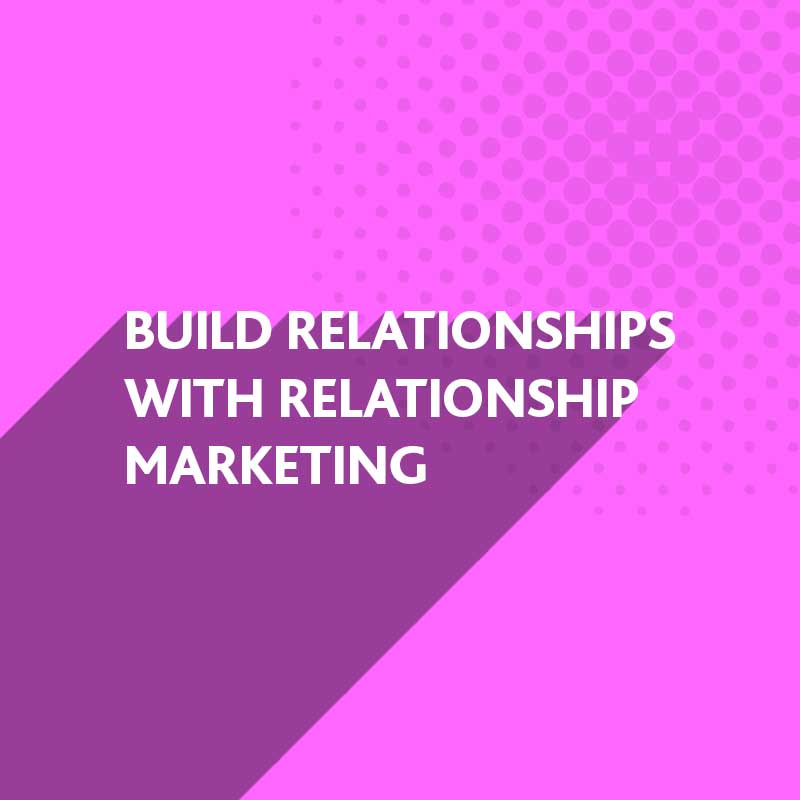
Build Relationships through Relationship Marketing
A good and solid relationship with your loyal, returning and continuing customers/clients is worth a fortune to every small business.
In
So, what is Relationship Marketing and why is it so important?
Social Media and Internet Marketing = Relationship Marketing
When everything you do revolves around your community – customers, clients, fans, followers, employees, etc. – the answer is clear. You will have the reputation, loyalty and love that keeps your business alive and thriving. You will have a connection with your audience, and that’s key to the success of your company.
Take the focus away from the monetary value attached to your products and services, and focus on what’s really going to affect your sales: relationships.
Relationship marketing online is fairly easy to achieve and is essentially a fine balance between technology and personality.
Something that has remained constant throughout the years is the power of relationships in business, and relationship marketing these days is even more prominent due to the power of Social Media Channels such as Facebook, Twitter, LinkedIn and Google+.
There are some who will insist that no problems of disconnect occurred until the Internet came along, but we don’t believe this to be the case. Technology is not the cause of disconnect; the cause is the people behind the computers.
If your online presence is genuine and your brand is ‘real’ then relationships will blossom.
We know that nearly 90% of consumers use search engines to make a purchasing decision, so you better believe that a strong community presence will feed your bottom line.
Relationship marketing from the ground up
To create a healthy community online, set up a steady foundation for your relationship marketing.
- Understand your audience. Identify your niche market and how you plan to solve their problems. Have a clear vision for who your products and services are going to help so you can target them more directly with a message that resonates more powerfully.
- Engage with your audience. Write with your audience’s wants and needs in mind. Listen to their feedback – good or bad – and give them a say in the conversation. Conversation is a two-way street, and there’s a difference between talking to people versus talking with them.
- Be a part of your community. Be present in conversations about your own brand and your industry. A good relationship marketing strategy covers all aspects of a community – from customers to competitors. Find ways to join in on relevant conversations, offering your own opinion, experience, expertise and input. Just be sure you have something worth saying.
- Demonstrate your expertise. One component of your relationship marketing strategy must address the fact that there is competition for what you’re offering. People will respect and listen to you more intently if your language is confident, clear and beneficial. If you’re not the expert in a certain area, that’s okay. Seek the advice or help of a non-competitor who knows the subject through and through, and give them credit for their knowledge.
- Answer questions. Create free downloads, pay close attention to what people are asking on social media sites, and set up a blog dedicated to helping visitors find the answers to their most common questions. Your customers want to be acknowledged and appreciated.
- Provide excellent service. Don’t just stop online with your relationship marketing. Continue the process offline and really show your customers that you appreciate them. Treat them with respect before, during and after a sale.
Final thoughts
The purpose of relationship marketing is to put the ‘people’ back
Take the focus away from profits, put the focus back on relationships, and trust that the profits will come as a result. That’s relationship marketing in a nutshell.
Are you building relationships with your business marketing?
